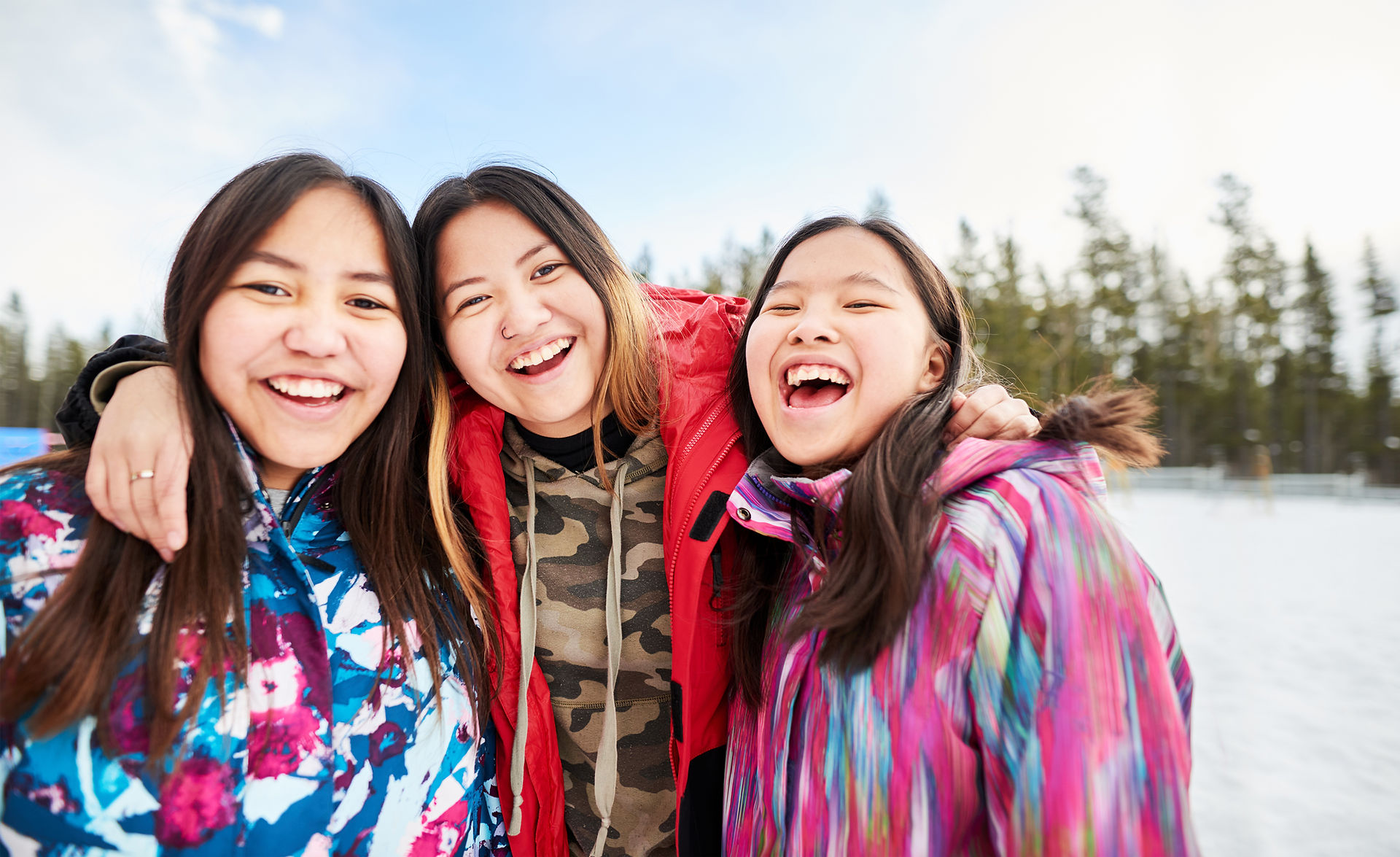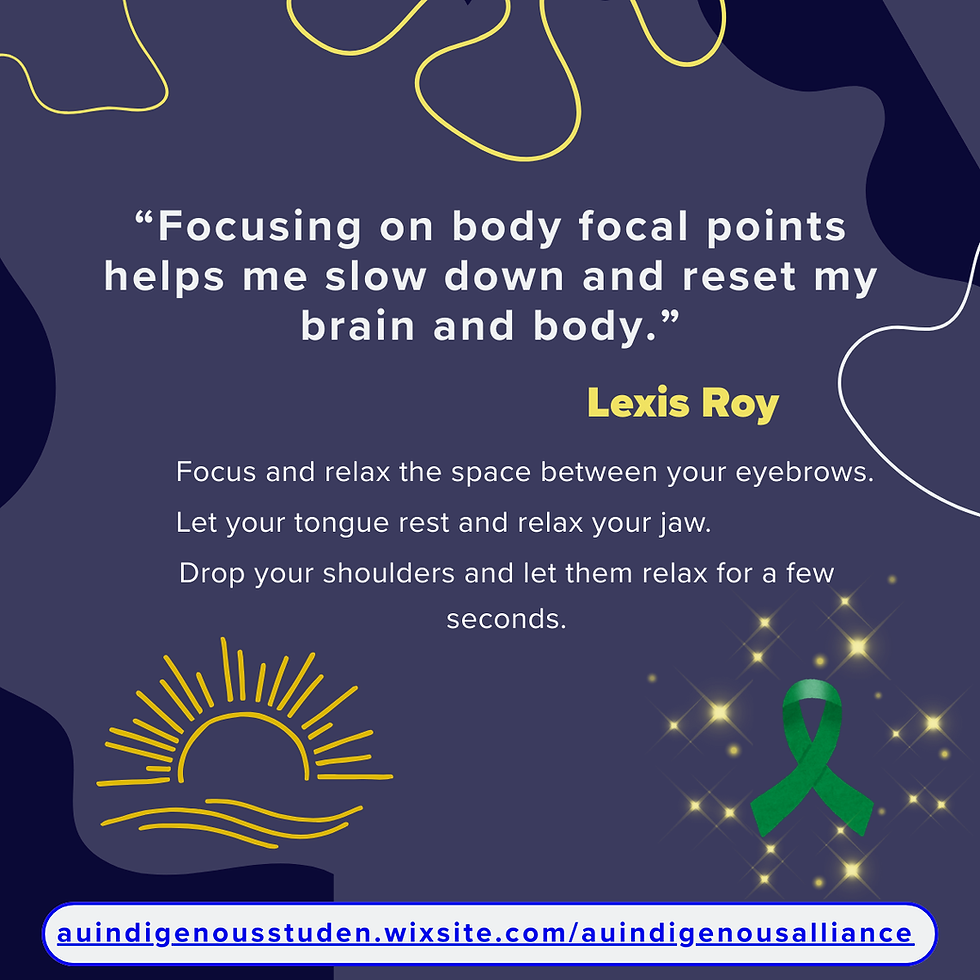
Join us for a grounding event led by Shane Patterson, Dr. Lana Ray and the Indigenous Student Alliance. Walking A Good Way on Mother Earth - February 10th.
Registration is required: Register here


Join us for a grounding event led by Shane Patterson, Dr. Lana Ray and the Indigenous Student Alliance. Walking A Good Way on Mother Earth - February 10th.
Registration is required: Register here
Blue Monday is a term used to describe the slump that many feel after the holidays conclude. January can be a time of stress, recuperating and managing mood during the dark and cold days.
Our Indigenous ancestors (regardless of where you are from!) honoured the seasons and adjusted accordingly. However in our modern world, we often don't get time to flow with the seasons or the gifts and lessons they bring.
A few of our members wanted to share some tips that help them with the Blue Monday downturn, or the overall season.



We hope these inspire you to take care of your emotional, spiritual, mental and physical needs.
Warm wishes,
The Wîcihitowin Indigenous Student Alliance

Métis clothing developed as a distinct style in the early 1800s in the Red River region as Métis identity strengthened. Paintings from this era show men wearing blue capotes, Assomption sashes, decorated leggings, and moccasins. Their clothing was tailored like Euro-North American garments but made from hides and adorned with beadwork that showcased Métis artistry. The Métis were also central middlemen in the beaver pelt and buffalo robe trade, which influenced fashion trends in Europe and North American cities.
![A [Métis man] with his Wife and Child, c. 1825 by Peter Rindisbacher. Winnipeg Art Gallery, G-82-215](https://static.wixstatic.com/media/23d64a_61fcde6ffbd44930b3abd0b8fcf33ce2~mv2.png/v1/fill/w_469,h_379,al_c,q_85,enc_avif,quality_auto/23d64a_61fcde6ffbd44930b3abd0b8fcf33ce2~mv2.png)
Métis floral beadwork became so iconic between 1800–1820 that Dakota Sioux and Cree communities called the Métis “the Flower Beadwork People.” This name reflects their elaborately decorated floral designs in beadwork, quillwork, and silk embroidery. Having emerged from a blend of First Nations design traditions and European embroidery techniques, flower beadwork spread through Métis trade routes and networks, which influenced many Indigenous communities across the Northern Plains.

As the fur trade expanded north, Métis clothing styles traveled with it. In the Mackenzie River Valley, Métis men wore smoked hide jackets with beaded or embroidered yokes and wool leggings with beaded side panels which is a regional variation distinct from Prairie Métis clothing.
This reflects how each Métis community and family developed its own clothing patterns, inspired by local materials and regional traditions. Northern Métis artisans also designed decorated snowshoes, dog blankets, whip handles, and sled covers.

Photo Source: https://www.metismuseum.ca/media/document.php/148472.Metis%20Mens%20Clothing%20(New).pdf
Women’s clothing blended First Nations and European influences: long skirts and blouses decorated with ribbonwork, velvet or wool leggings, and richly beaded moccasins. For celebrations, Métis women wore brightly coloured skirts, silk dresses, shawls, jewelry, and embroidered accessories. Métis women were the creators and designers of family clothing and their artistry gave rise to the vibrant styles that still characterize Métis culture today.

Métis men’s attire included capotes, hide jackets, wool or tanned-skin pants, bright sashes, fur hats, and elaborately beaded moccasins. Decorated shot pouches and bandolier bags added both beauty and utility. Men adapted their clothing for active winter travel, keeping garments lightweight but warm, and adorned everything from hats to leggings with beadwork, quillwork, painting, or ribbonwork.

Photo Source: https://www.metismuseum.ca/media/document.php/148472.Metis%20Mens%20Clothing%20(New).pdf

Photo Source: https://www.metismuseum.ca/media/document.php/14789.History%20of%20the%20Metis%20Sash.pdf

The capote, a hooded coat made from a Hudson’s Bay Blanket, became a cultural marker among Métis and voyageurs. Women crafted each coat from a single blanket, adding beadwork, quillwork, fringes, or ribbonwork. Blue capotes were popular among Métis, red among First Nations, and multistripe versions were reserved for special occasions. Hudson’s Bay blankets were highly valued for their durability and role in the fur trade economy.
Beyond everyday wear, Métis artisans crafted a range of specialized items: rabbit-skin robes, tobacco and octopus bags, bandolier bags, dog blankets, horse blankets, and even dolls’ clothing. These items were functional and highly decorated. On the coasts and in some regions, Métis clothing even closely resembled that of neighbouring First Nations and Inuit peoples.
Métis art has long been shaped by trade and commerce. In the 18th and 19th centuries, Métis artisans produced decorated hides, cloth garments, quillwork, and beadwork for trade with First Nations, for fur companies, and later for tourists, travelers, and elite buyers. Items ranged from embroidered slippers and purses to elaborately decorated coats and table mats. This commercial focus helped sustain Métis cultural expression even as the bison disappeared and communities faced major social and economic changes.

The highly recognizable Métis sash, often called the Assomption sash or arrow sash, is one of the most enduring symbols of Métis identity. Its origins reflect the blending of First Nations and French-Canadian textile traditions. Early sashes combined Indigenous finger-braiding techniques using nettle fibre, buffalo hair, or native hemp with French-Canadian wool-braiding practices. By the late 1700s, weaving villages in L’Assomption, Quebec developed a thriving industry producing the colourful ceinture fléchée for fur-trade use. These sashes became widely worn by voyageurs, First Nations hunters, and the emerging Métis Nation.
Throughout the 1800s, the sash became both a practical tool and a cultural marker.
It kept capotes closed, provided warmth, and served as a tumpline, rope, sewing thread, or emergency bridle. Long sashes could reach twenty feet, wrapped several times around the waist and used daily during bison hunts and travel. They also communicated status, with different colours and fringe lengths marking rank within the North West Company and Hudson’s Bay Company.
Traditionally woven from fine, waxed wool, a high-quality sash could take 200 hours to complete. Modern sashes still use the iconic red, blue, white, green, and yellow. Today, the sash remains a powerful emblem of Métis cultural continuity.

Young, Patrick. Traditional Métis Clothing. Gabriel Dumont Institute. https://www.metismuseum.ca/media/document.php/00745.Traditional%20Clothing.pdf
Vien, Louise, and Lawrence Barkwell. History of the Métis Sash. Louis Riel Institute.
Gabriel Dumont Institute. Métis Men’s Clothing (New).


